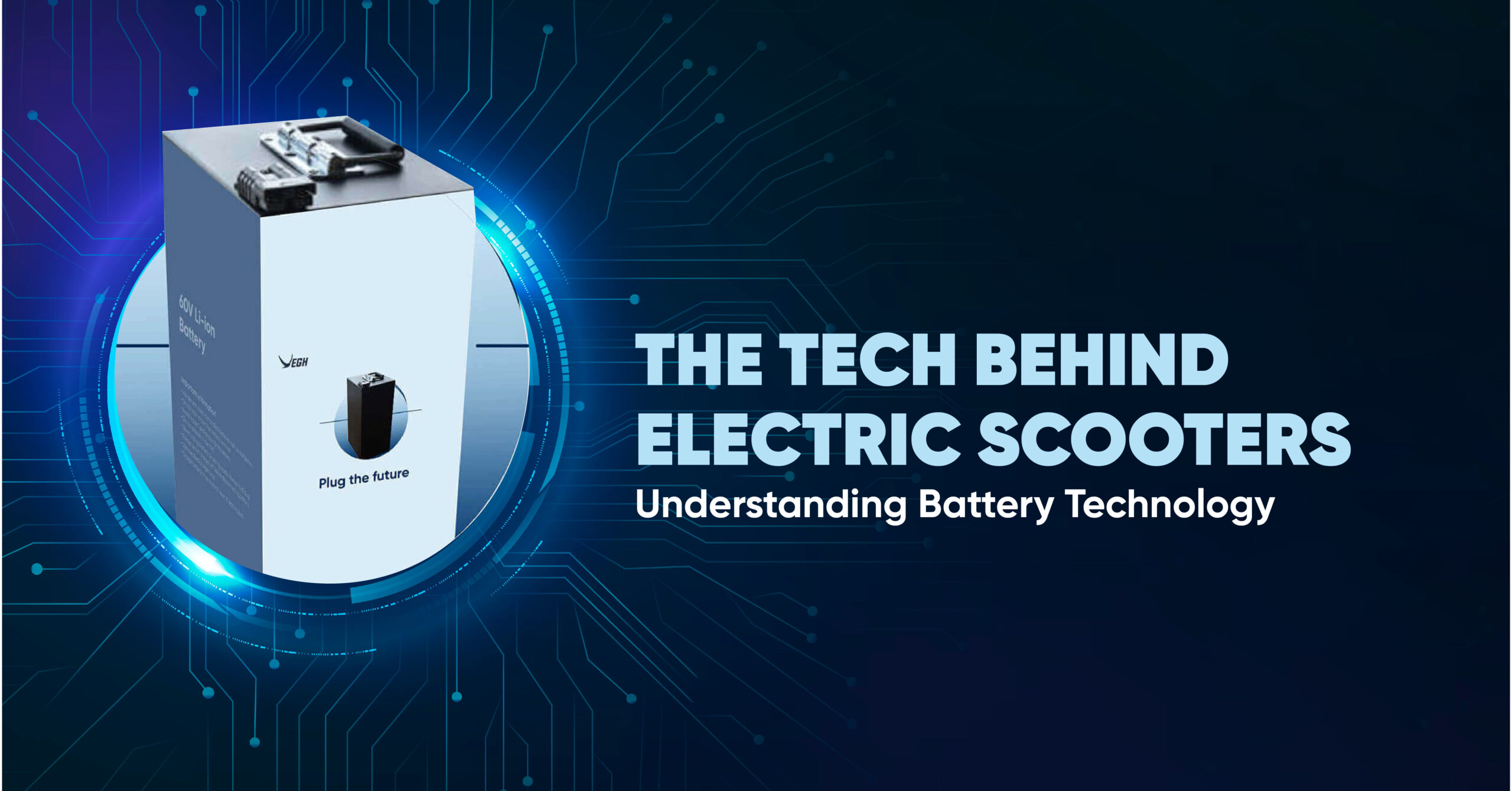
In recent years, electric scooters have revolutionised urban transportation, offering an eco-friendly and efficient alternative to traditional vehicles. At the heart of these E-scooters lies the battery technology that powers them. Understanding the battery technology behind electric scooters such as Vegh Automobiles is essential to grasp their potential and limitations, as well as to explore the ongoing advancements in this field. This blog delves into the intricacies of battery technology and its critical role in shaping the future of E-scooters.
Lithium-ion (Li-ion) batteries have become the most common type of battery used in EVs such as Vegh electric scooters due to their high energy density, lightweight design, and long lifespan. These batteries use lithium ions to store and release energy, making them highly efficient for powering E-scooters. The combination of energy density and low weight allows electric scooters to be lightweight and easily manoeuvrable.
The capacity of a battery is measured in kilowatt-hours (kWh) and directly affects the range of an electric scooter. A higher capacity battery will store more energy and offer a longer range per charge, enabling users to cover greater distances without recharging. Battery capacity and range play a vital role in the usability of EV scooters for daily commuting and short-distance travel.
Charging time is a crucial consideration for electric scooter users, especially for those using them for daily commuting. Lithium-ion batteries are known for their fast charging capabilities, making them convenient for quick pit stops. However, factors such as battery capacity, charging infrastructure, and charging method (standard or fast charging) impact the charging time. Manufacturers are continually working to improve charging efficiency to reduce charging times and enhance user convenience.
Battery safety is of paramount importance in e-scooters. Lithium-ion batteries are susceptible to overheating and can pose a fire hazard if not adequately protected. To ensure safe battery operation, manufacturers implement safety features such as thermal management systems and electronic controls. Battery management systems (BMS) continuously monitor battery performance, ensuring balanced charging, preventing overcharging, and safeguarding against over-discharging, thus optimizing the battery’s lifespan and performance.
The Battery Management System (BMS) is a vital component in e-scooters that plays a crucial role in monitoring and controlling battery performance. BMS ensures that the battery operates within safe temperature and voltage limits, preventing issues such as thermal runaway and overcharging. By monitoring the state of charge, state of health, and state of function, BMS optimizes battery performance, enhances safety, and prolongs battery life.
Researchers are continuously exploring new battery chemistries to improve electric scooter performance. Solid-state batteries, for instance, hold the promise of higher energy density, faster charging times, and enhanced safety. As technology advances, these batteries may become more prevalent in electric scooters, revolutionizing the industry and offering even more efficient and sustainable transportation solutions.
The adoption of E-scooters powered by Li-ion batteries has a positive impact on environmental sustainability. By reducing reliance on fossil fuel-powered vehicles, electric scooters help to lower greenhouse gas emissions, combat air pollution, and contribute to cleaner and greener urban environments. The sustainable nature of e-scooters is further enhanced by the ability to charge them using renewable energy sources, such as solar or wind power.
As electric scooters become more mainstream, recycling and proper end-of-life management of batteries become essential. Lithium-ion batteries contain valuable materials, such as lithium, cobalt, and nickel, that can be recycled and reused, reducing waste and conserving valuable resources. Companies and regulators are working on establishing efficient battery recycling programs to address this concern and promote a circular economy for electric scooter batteries.
With continuous research and development, battery technology is poised to make E-scooters more efficient, powerful, and affordable. Advancements in battery chemistry and charging infrastructure will play a significant role in shaping the future of e-scooters as a sustainable and viable mode of transportation. As battery technology continues to evolve, we can expect electric scooters to offer longer ranges, faster charging times, and improved safety, making them an increasingly attractive and practical choice for urban mobility.
Temperature plays a significant role in battery performance and lifespan. Extreme temperatures, both hot and cold, can affect the efficiency and capacity of lithium-ion batteries. High temperatures can lead to faster degradation and reduced battery life, while very low temperatures can result in decreased charging efficiency and lower capacity. Manufacturers are working on developing thermal management systems that regulate the temperature of batteries during operation, charging, and storage, ensuring optimal performance in various weather conditions.
To address the limitations of battery charging infrastructure, some electric scooter companies such as Vegh automobiles offer removable battery models. These models allow users to remove discharged batteries at home , eliminating the need to wait for battery charging. Removable batteries enable convenient charging and contribute to enhanced user convenience.
Battery technology is at the core of the electric scooter revolution, powering sustainable and efficient urban transportation. Lithium-ion batteries have emerged as the preferred choice due to their high energy density, fast-charging capabilities, and long lifespan. The future of e-scooters relies on continuous innovation in battery technology, enabling longer ranges, faster charging times, and improved safety. As the world shifts towards sustainable mobility solutions, understanding battery technology is critical for unleashing the full potential of e-scooters and contributing to a greener and cleaner future. With ongoing advancements in battery technology and a growing focus on sustainability, electric scooters are set to play an even more significant role in the future of urban transportation.